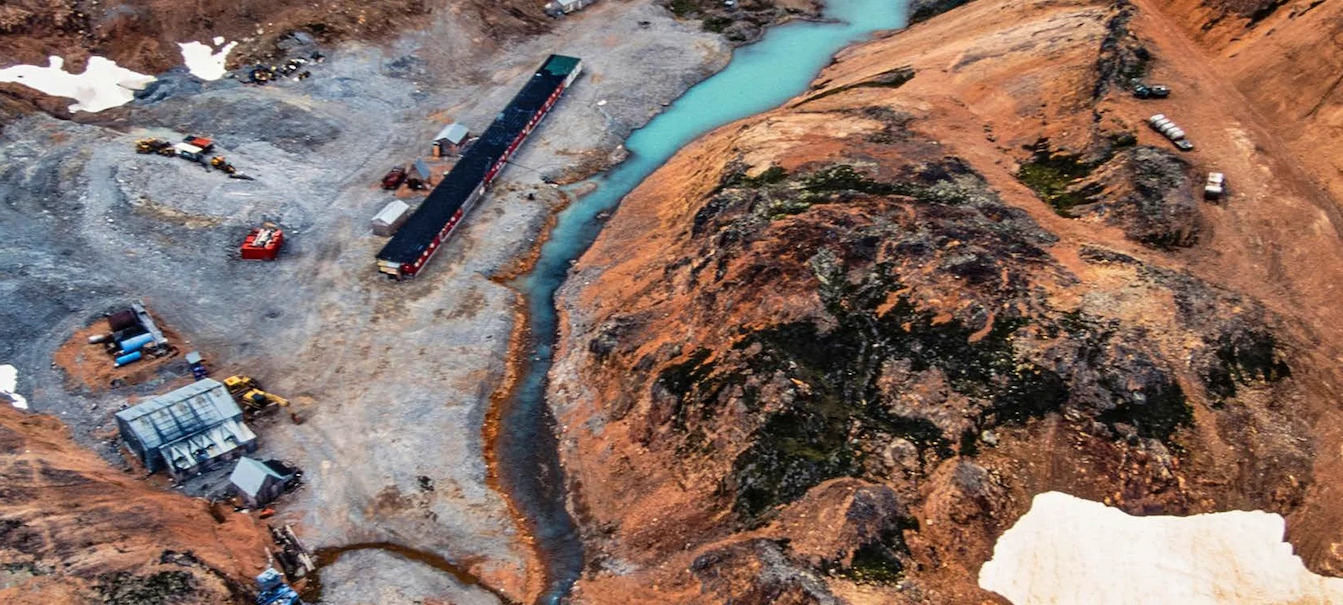Enabling a just energy transition: The crucial role of corporate accountability in the EU Critical Raw Materials Act

The European Parliament is preparing to vote on the Critical Raw Materials Act (CRMA) this week, providing a golden opportunity to embed key principles which will promote a true just energy transition.
Climate change presents a profound risk to human rights. Responding to it with the urgency it deserves requires changing unsustainable patterns of consumption and production and a shift to renewable sources of energies – such as wind and solar. Yet, acceleration in the extraction of raw materials needed to manufacture these technologies risks exacerbating human rights violations and environmental destruction that have long been the hallmarks of the extractive sector. Repeating its failure to prevent harmful impacts on affected communities is not an option. More than half of global resources for minerals essential in the energy transition are located on or near the lands of Indigenous and peasant peoples – whose rights to Free, Prior and Informed Consent (FPIC) must be preserved.
Mining comes with risks of human rights abuses. Between 2010 and 2022, the Resource Centre documented 510 allegations of abuses in connection with the extraction of copper, cobalt, lithium, nickel, manganese and zinc. Civil society organisations and Indigenous Peoples’ movements have called for the EU to safeguard human rights and the environment in the CRMA. Without adequate human rights and environmental protections, and without questioning European consumption levels for virgin raw materials, incentivising the intensification of mining activities can lead to a dramatic increase of their impacts on local communities, Indigenous Peoples and their environments.
The European Union (EU) has an opportunity to lead a rapid, global energy transition which leaves no one behind, addressing the climate crisis whilst respecting the rights of communities, human rights and environmental rights defenders and Indigenous Peoples, and guaranteeing certainty and competitiveness for companies and investors.
1. Aligning corporate responsibility and demands on companies:
The CRMA should guarantee policy coherence and legal certainty through explicit reference to international due diligence standards set out in the UN Guiding Principles on Business & Human Rights (UNGPs), the OECD Guidelines for Multinational Enterprises and the upcoming Corporate Sustainability Due Diligence Directive (CSDDD) – and ensure they apply to all strategic project promoters in the CRMA. This involves requirements for substantive human rights and environmental due diligence (HREDD), to avoid sole reliance on industry-led certification schemes – whose limitations, amongst others, resulting from a lack of transparency, independence and conflicts of interest have been documented. Such schemes promote top-down approaches to compliance and stifle innovation and ongoing improvements in corporate due diligence practices. While certification can support compliance with sustainability or corporate HREDD responsibilities, it cannot achieve these by itself.
2. Corporate accountability and respect for human rights and Indigenous Peoples’ rights:
Legislation on raw materials supply chains also needs to tackle the environmental and social impacts of mining for transition minerals. These are multifaceted and, as research by the Resource Centre has shown, are often associated with multiple harms including air, soil and water pollution, overuse of water resources, loss of biodiversity and deforestation, health and safety issues in the workplace, land rights abuses and lack of consultation and engagement with local and Indigenous communities. The current global rush to mine for more transition minerals also creates incentives for unscrupulous mining companies to use corrupt practices to cut corners on environmental and human rights safeguards, as well as expedite community consultation processes. Mining is also the most dangerous sector for human rights defenders.
Corporate abuse, and the distrust it generates, risks derailing the global energy transition. EU policymakers must consider the track record of human rights and environmental abuses of candidate project promoters. Fast-tracking mining projects cannot come at the expense of human rights, and especially not Indigenous Peoples’ rights. Respect for their unique and internationally recognised rights, in particular their right to self-determination, which includes the right to give or withhold their FPIC to projects on their lands, must be front and centre within the CRMA.
To ensure sponsored projects are grounded in meaningful involvement and respect for public participation rights of local communities is anchored in international law, language such as ‘facilitating public acceptance’ must be avoided. Engagement with local communities should be defined in the framework of existing international obligations, including Article 27 of the International Convention of Civil and Political Rights, the UNGPs, the OECD Guidelines for Multinational Enterprises, the United Nations Declaration on the Rights of Indigenous Peoples, as well as the International Labour Organization’s Convention 169.
3. Enabling a global just transition
The CRMA should include safeguards to enable resource-rich countries’ self-determined development, energy security and local value addition, and guarantee the availability of such materials for the energy transition requirements of non-EU countries and prevent human rights violations. It is equally important for the CRMA to adopt a systemic approach to the determination and long-term reduction of environmental footprints. Taking proactive measures to mitigate the increase in demand of critical raw materials should be a core strategy of the EU to strengthen its strategic autonomy and reduce its global environmental footprint.
Enabling a global just transition must also include a strong participation of civil society in the governance body of the CRMA. Civil society’s meaningful participation, including organisations from partner countries, is also essential when selecting and prioritising strategic partnerships.
By Olga Martin-Ortega and Caroline Avan, Business & Human Rights Resource Centre
Johanna Sydow, Heinrich Böll Foundation
Alejandro Gonzalez and Joseph Wilde-Ramsing, SOMO